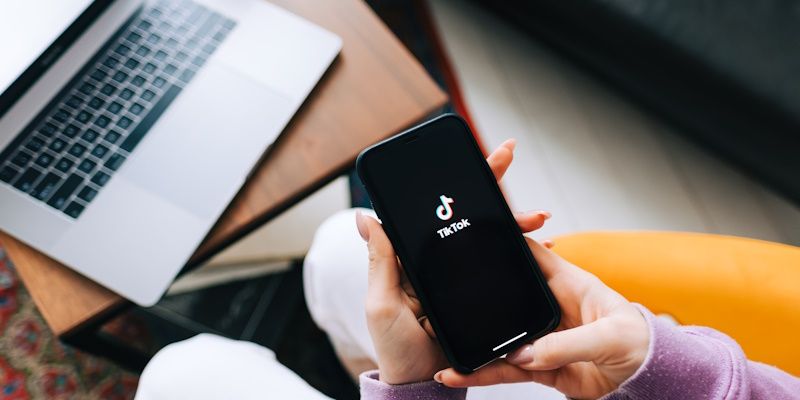TikTok may go dark on Sunday in the United States if a long-discussed federal ban goes into effect and, as is rumored, the company then chooses to disable the app for users in the U.S.
There has been plenty of discourse in mainstream media about what a ban would mean for users and also for companies that use the platform as part of their marketing strategies. Expedia has 1.7 million followers on the app and Booking.com has 1.4 million, and there's been growing activity in recent years from travel companies using TikTok to drive brand recognition through short-form videos, with some evening hiring TikTok-focused content creators.
But as the ban looms, travel companies PhocusWire contacted are not expressing much concern. Konrad Waliszewski, co-founder and CEO of @Hotel, a travel booking platform that operates through dozens of social media accounts, said the impact to the industry overall will be minimal.
“Travel is a higher-consideration purchase, and TikTok just didn't drive the same travel commerce as Instagram - yet,” he said.
“Large travel incumbents won't see an impact because they've barely embraced social media to begin with. They still rely exclusively on Google Ads, Google SEO and legacy TV commercials — despite millennials and Gen Z switching their attention and primary search behavior to social media.”
It's a different story for smaller players however.
“The real losers are local gems, emerging destinations and impulse purchase products that thrived on viral spikes,” Waliszewski said.
Travel brands unfazed
Waliszewski said he is not concerned for his company, which has garnered millions of followers on TikTok, because it is not tied to one platform.
“We go where the attention goes, and that’s always changing,” he said. Waliszewski also said a TikTok ban could benefit @Hotel by “funneling users to our highest-converting marketing channel, Instagram.”
“Any exodus from TikTok would simply flow back into these core channels, further accelerating our social commerce strategy.”
Waliszewski thinks an Instagram strategy will become more critical for other brands too as a result of a TikTok ban. He pointed to the significant amount of time consumers are spending on short-form video and prioritizing user-generated content. This just means a shift to platforms like Instagram for Reels and YouTube for YouTube Shorts, he said.
Steve Hafner, co-founder and CEO of Kayak, which has more than 72,000 followers on TikTok, said he hopes that the social media application sticks around. But his attitude towards its seemingly imminent disappearance on the American social scene is laissez-faire.
“If it doesn't, it's easy for us to pivot those marketing dollars to other short-form content platforms like Snapchat and YouTube,” he said. PhocusWire reached out to other brands including Airbnb, Expedia Group, United Airlines and Viator, which all declined to comment.
Flexible strategy
The reality is that what’s happening is not in a silo.
Madeline List, manager of research and special projects for Phocuswright, said that marketers won't want to lose access to any major platform providing reach to potential customers and that "some calibration of marketing strategy" would be required.
"But the industry is full of savvy marketing professionals who can rise to meet these challenges — they were marketing before TikTok was around and can market again without it there, but losing a channel is not a welcome disruption."
Marketing industry professionals advised travel brands to explore all platforms because of the "constantly evolving" social media landscape.
“The best strategy for brands remains consistent: maximize performance through a multi-channel approach, stay where your audience is and have contingency plans for key platforms,” said Thomas Rankin, co-founder and CEO of Dash Social, a social marketing agency that works with travel brands including United, Viator and Celebrity Cruises.
He also said that the final outcome of the "unprecedented" situation remains unknown.
And, advertisers have had a year to devise a backup plan, according to Craig Atkinson, CEO of Code3, a digital marketing agency.
“Everyone’s dusting those off, making sure they still make sense,” he said.
In addition to companies coming up with contingency plans, travelers have provided some insight into what they might do if TikTok is no longer available to the U.S. audience.
List referenced a study on social media published by Phocuswright last year in which travelers who use TikTok for planning or sharing information about their trips were asked how they would move forward if the platform was phased out.
“The answers were diverse: 44% would just shift their behavior onto other social media platforms — Instagram was particularly popular here — while 36% would look for more travel information off of social media,” she said. “Only 14% expressed that they would continue using TikTok through a VPN.”
No matter what happens, TikTok's impact on social media practices across the U.S. isn't likely to disappear.
“TikTok has fundamentally transformed how consumers and brands connect, and its influence continues to shape the broader social media ecosystem,” Rankin said.
Tags: Konrad Waliszewski, @Hotel, Thomas Rankin, Dash Social, Instagram, . TIKTOK, Craig Atkinson, Code3
